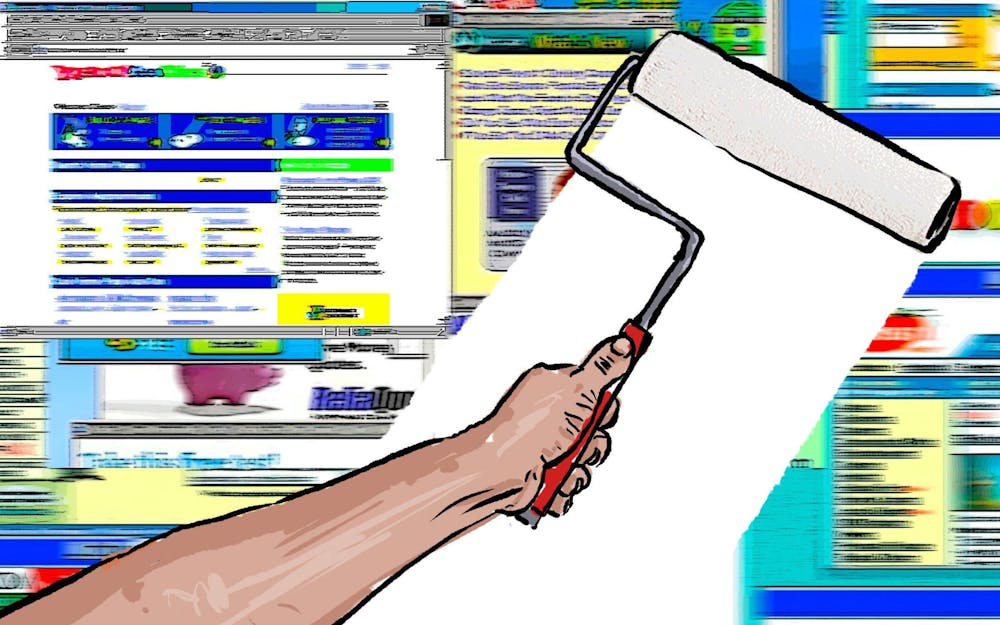Our world is defined by the internet. Last year, over 5 billion people had internet access, including over 300 million in the United States alone. The internet has become more accessible, centralized and, most importantly, profitable.
The internet has grown out of its “wild west” days as social media’s dominance has spread. But I can’t say that I’m completely satisfied with this state of affairs. In the trade-off to become a more connected world, we lost something — our individuality.
Think about, say, your Twitter profile. What can you customize? Your header image, your profile picture, your display name, your bio, your location and your website. While it might seem like a lot, that’s the extent of it. You can’t change your background or font colors, the font itself, text sizes or even have your favorite song jamming in the back. You can personalize the page, but you can’t really make it your own.
Social media companies are businesses first and foremost. Their actions are designed to appeal to advertisers, even if they undermine the individuality of their users. In our progress, we’ve lost the freedom that defined the internet for so long.
It goes beyond just aesthetic choices. To appeal to advertisers the most, social media corporations utilize content moderation to create the most friendly spaces imaginable. To be fair, there’s nothing wrong with moderating what happens on your site. Removing or demonetizing content that spreads hate speech or misinformation is honestly a public service. However, many sites have gone past censoring offensive speech into just censoring speech.
Take YouTube for example, which rolled back its controversial swearing rules earlier this year. Under the rules, if a creator swore within the first 15 seconds of a video or swore “heavily” throughout, their content could be demonetized, meaning no ads would run and they couldn’t make money from it.
[Related: OPINION: AI could be detrimental to human relationships]
YouTube promised to change the rules, but they still penalize creators for swearing, even if it is less intense. The rules are still vague — depending on how “strong” YouTube deems your swearing to be, you could be eligible for full ads, reduced ads, or full demonetization.
On social media sites, we’re subject to whatever the company feels is “right” to post. And what companies feel is right is what makes advertisers happy. There can’t be anything even a bit controversial or advertisers might get scared.
What this leads to is a weird middle ground between sanitized and mature. YouTube only allows users over the age of 13 — everyone under 18 is supposed to use the service by parental permission only. Despite the fact that only adults — or those deemed mature — are supposed to be on YouTube, they somehow can’t handle hearing cursing in videos. There’s no longer spaces for kids or adults only. There’s only space for advertisers.
But beyond all of that, the internet has just become boring. Instead of personalized sites and content moderation, things have become centralized and minimalist gray.
Take, for example, the simple fandom Wiki. Years ago, Wikis were hosted on their own dedicated websites, upkept by dedicated fans. Now, when you seek out a Wiki of your choice, you’ll likely be directed to Fandom, a huge Wiki repository which now hosts over 250,000 Wikis and causes my phone to heat up every time I load the site due to the number of ads.
There’s nothing wrong with reducing the startup costs of creating a website or forming a larger network of these sites. But I can’t help but feel that something is missing. There are only limited personalization options on Fandom, so every Wiki feels about the same. Which is a shame, because no fanbase is the same as another.
[Related: OPINION: Staying in touch — the social media cocoon]
In the new age of the internet, the individuality that defined the past has been lost. We’re subject to the content moderation of giant corporations rather than that of our peers. There isn’t as much contact with those of us in our niches. Things have gotten more centralized, but also further apart.
Recapturing the magic of the internet means creating our own spaces again. So, here’s my suggestion — maybe spend this summer learning some HTML.
Danny William (they/them) is a sophomore studying media.






